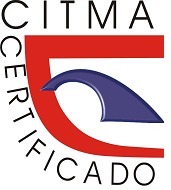La Gestión del Conocimiento como enlace del Sistema de Dirección y Gestión y el Modelo de Calidad para el Desarrollo de Aplicaciones Informáticas: Pautas para el perfeccionamiento Empresarial y la certificación del Modelo
DOI:
https://doi.org/10.5281/zenodo.5811981Palabras clave:
gestión del conocimiento, empresa estatal, proceso de mejora, Sistema de Dirección y GestiónResumen
La mejora del desempeño organizacional, basada en el aprendizaje y la innovación, requiere cada vez más de procesos estructurados de gestión de información y conocimientos. En una sociedad cada vez más informatizada y cambiante, la capacidad de gestionar adecuadamente la información se hace imprescindible para el logro de las metas operativas y estratégicas de las organizaciones. El establecimiento de un proceso de gestión de conocimientos asegura el entorno en el que la información esté accesible, se comparta, se transforme en conocimiento nuevo y permita su uso en beneficio de la organización, impactando en su ventaja competitiva. Las empresas de base tecnológica como organización que centra su eficiencia fundamentalmente en el conocimiento, profundizan en este aspecto. El presente artículo de revisión bibliográfica se realizó con el objetivo de identificar las pautas que garantizan la gestión de conocimiento de acuerdo a los requisitos del Modelo cubano de calidad para el desarrollo de aplicaciones informáticas, previstas en la base normativa vigente para la empresa estatal cubana en el Sistema de Dirección y Gestión del proceso de perfeccionamiento empresarial. Esta revisión provee las pautas para las empresas que pretendan iniciar un proceso de mejora con el objetivo de: certificar su modelo de gestión como Empresa Estatales de
Aplicaciones y Servicios Informáticos, iniciar el Proceso de Perfeccionamiento Empresarial y/o certificarse a partir de lo que exige el Modelo cubano de calidad para el desarrollo de aplicaciones informáticas
Citas
Alfaro, H. P. (2011). Implementación de la Gestión del Conocimiento en la empresa. 135, 6.
Alicia María Vitale Alfonso, Eliani Fernández Vidal, & Marian Cabrera Soto. (2020). Importancia de la gestión del conocimiento para la creación de valor en las empresas cubanas. Vol. 14(1). https://hemeroteca.unad.edu.co/index.php/publicaciones-e-investigacion/article/view/3466/4069
Bermúdez, M. D.-C. (2021). ¿Por qué necesitamos un sistema de gestión del Gobierno basado en ciencia e innovación? Anales de la Academia de Ciencias de Cuba, 11(1), 1000.
Centro nacional de calidad de software. (2020). Modelo de la Calidad para el Desarrollo de Aplicaciones Informáticas.
Decreto Ley 34 de Consejo de Estado, n.o 34 (2017). https://www.gacetaoficial.gob.cu/es/decreto-ley-34-de-2021-de- consejo-de-estado
DECRETO-LEY No. 252, n.o SOBRE LA CONTINUIDAD Y EL FORTALECIMIENTO DEL SISTEMA DE DIRECCIÓN Y GESTIÓN EMPRESARIAL CUBANO (2018). https://www.gacetaoficial.gob.cu/sites/default/files/goc-2018-o56.pdf
DECRETO-LEY No. 281, Consejo de ministros (2007) (testimony of Consejo de ministros). https://www.gacetaoficial.gob.cu/sites/default/files/goc-2018-o56.pdf
Fernández Valdés, M. de las M., & Ponjuán Dante, G. (2008). Análisis conceptual de las principales interacciones entre la gestión de información, la gestión documental y la gestión del conocimiento. ACIMED, 18(1), 0-0.
Franch León, K., & Guerra Bretaña, C. R. M. (2016). Las normas ISO 9000: Una mirada desde la gestión del conocimiento, la información, innovación y el aprendizaje organizacional. Cofin Habana, 10(2), 29-54.
Hernandez-Sampieri, R. & Torre, C.P.M. (2018). Definición Del Alcance De La Investigación En La Ruta Cuantitativa: Exploratorio, Descriptivo, Correlacional O Explicativo. Metodología De La Investigación: Las Rutas Cuantitativas, Cualitativas Y Mixtas. Mcgraw-Hill Interamericana Editores.
León, K. F., & Saiz, V. A. (2012). La gestión del conocimiento y el aprendizaje organizacional en el contexto académico. 10.
Nonaka, I. (1994). «A dynamic theory of organizational knowledge creation». (1.a ed., Vol. 5). https://doi.org/10.1287/orsc.5.1.14
Partido Comunista de Cuba (PCC). (2017). Documentos del 7mo. Con- greso del Partido aprobados por el III Pleno del Comité Central del PCC el 18 de mayo de 2017 y respaldados por la Asamblea Nacional del Poder Popular. , La Habana. Disponible en: (I). http://www.granma.cu/file/pdf/gaceta/%C3%- BAltimo%20PDF%2032.pdf
Ponjuán Dante, G., & Hernández Castellano, W. (2017). Contextos para la Gestión del Conocimiento en organizaciones cubanas: Un acercamiento al «Ba» en Cuba. Revista Cubana de Información en Ciencias de la Salud, 28(2), 1-17.
Reinaldo Plaz Landaeta. (2003). Gestión del conocimiento: Una visión integradora del aprendizaje organizacional. 18. http://www.madrimasd.org/revista/revista18/tribuna/tribuna2.asp?imprimir=#principio
Vera Carrasco, O. (2009). CÓMO ESCRIBIR ARTÍCULOS DE REVISIÓN. Revista Médica La Paz, 15(1), 63-69.
Descargas
Publicado
Cómo citar
Número
Sección
Licencia
Derechos de autor 2021 Maylú Martínez González, Katia Franch León

Esta obra está bajo una licencia internacional Creative Commons Atribución-NoComercial 4.0.













